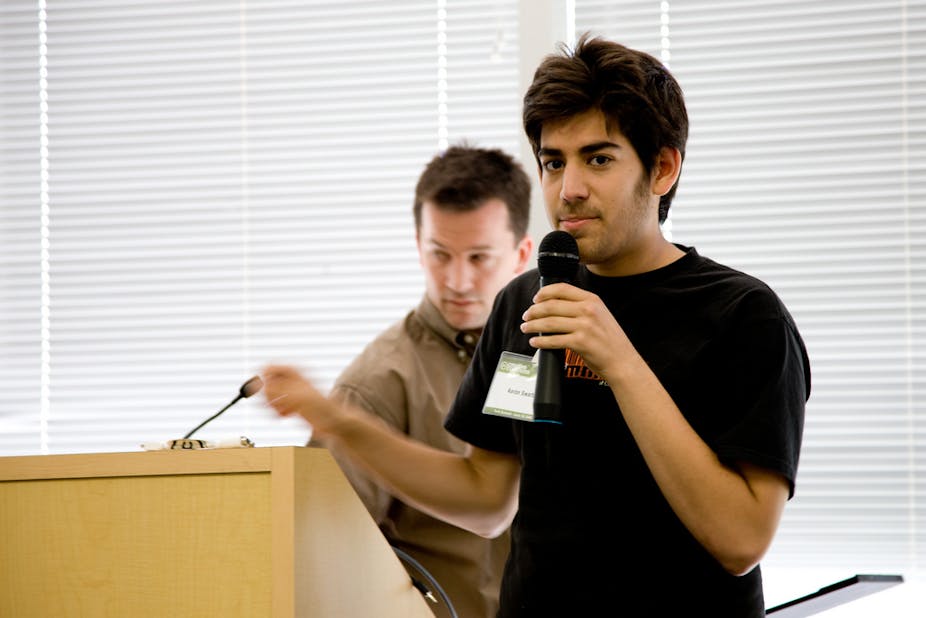More than 18,000 journal articles have been posted on an illegal file-sharing website to protest the arrest of an online activist accused of stealing more than four million documents from a Massachusetts Institute of Technology database.
The arrest of Aaron Swartz, who has campaigned for free access to journal articles and once helped run social webpage aggregator reddit.com, has fuelled furious debate about how access to scientific and historical data is managed.
According to a indictment sheet filed in the District Court of Massachusetts in the U.S, Swartz was arrested on charges he broke into a computer wiring closet at MIT and illegally downloaded more than four million articles from a pay-walled MIT database called JSTOR. He faces up to 35 years in jail and a fine of $US1 million if convicted.
“Stealing is stealing whether you use a computer command or a crowbar, and whether you take documents, data or dollars. It is equally harmful to the victim whether you sell what you have stolen or give it away,” the United States Attorney for the District of Massachusetts, Carmen M. Ortiz, said on her website.
In protest, a person using the name ‘Greg Maxwell’ posted 18,529 academic papers from the scientific journal Philosophical Transactions of the Royal Society to the illegal file-sharing website, The Pirate Bay on Wednesday.
In a statement posted on the website, Maxwell argued that access to academic articles should be free.
“Academic publishing is an odd system – the authors are not paid for their writing, nor are the peer reviewer (they’re just more unpaid academics), and in some fields even the journal editors are unpaid. Sometimes the authors must even pay the publishers.
"And yet scientific publications are some of the most outrageously expensive pieces of literature you can buy,” the statement said.
Some academic journals charge as much as $25,000 a year for subscriptions, but Maxwell said the price should be lowered as internet publishing reduced the cost of journal production.
“The ‘publish or perish’ pressure in academia gives the authors an impossibly weak negotiating position, and the existing system has enormous inertia,” he said, adding that academic institutions had done little to change the system that prevents free access to important scientific, medical or historical findings.
“The documents are part of the shared heritage of all mankind, and are rightfully in the public domain, but they are not available freely. Instead the articles are available at $19 each – for one month’s viewing, by one person, on one computer. It’s a steal. From you.”
Maxwell said he had accessed the documents legally but described the for-profit academic journal model as a ‘poisonous industry’.
“If I can remove even one dollar of ill-gained income from a poisonous industry which acts to suppress scientific and historic understanding, then whatever personal cost I suffer will be justified, it will be one less dollar spent in the war against knowledge. One less dollar spent lobbying for laws that make downloading too many scientific papers a crime.”
JSTOR said on its website that it had not pursued charges against Swartz and that the prosecution was being led by the U.S Attorney’s Office.
It defended its record of managing scholarly work, saying its ultimate goal was to provide affordable access to data.
“It is important to note that we support and encourage the legitimate use of large sets of content from JSTOR for research purposes. We regularly provide scholars with access to content for this purpose. Our Data for Research site (http://dfr.jstor.org) was established expressly to support text mining and other projects, and our Advanced Technologies Group is an eager collaborator with researchers in the academic community,” the statement said.
“Even as we work to increase access, usage, and the impact of scholarship, we must also be responsible stewards of this content. We monitor usage to guard against unauthorised use of the material in JSTOR, which is how we became aware of this particular incident.”

